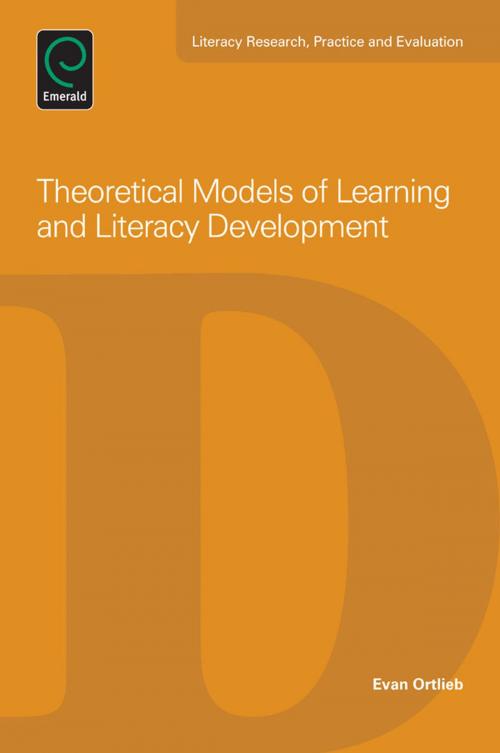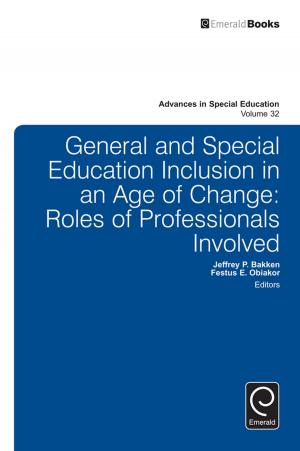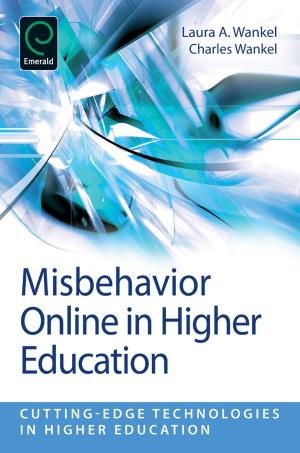Theoretical Models of Learning and Literacy Development
Nonfiction, Reference & Language, Language Arts, Literacy, Education & Teaching| Author: | Evan Ortlieb | ISBN: | 9781783508228 |
| Publisher: | Emerald Group Publishing Limited | Publication: | June 13, 2014 |
| Imprint: | Emerald Group Publishing Limited | Language: | English |
| Author: | Evan Ortlieb |
| ISBN: | 9781783508228 |
| Publisher: | Emerald Group Publishing Limited |
| Publication: | June 13, 2014 |
| Imprint: | Emerald Group Publishing Limited |
| Language: | English |
This text provides rich discussions of learning processes and subsequent pedagogical approaches to the implementation of these new theories in practice. Section One emphasizes how students learn, retain, and synthesize new information from print and digital literacies using cognitive and social psychology lenses. Section Two presents models for deep, contextualized learning needed to obtain content mastery. Section Three focuses on revised learning, or adjusting previously held misconceptions within educational development. This text not only contributes substantially to understanding the mental constructs involved in the reading and writing process but also offers novel perspectives on how to optimize instruction using current theoretical lenses to bolster literacy achievement. Theoretical Models of Literacy Development serves as an invaluable resource for researchers, teacher educators, curriculum directors, and graduate students in their efforts to help individuals learn to read and understand information in the global information age.
This text provides rich discussions of learning processes and subsequent pedagogical approaches to the implementation of these new theories in practice. Section One emphasizes how students learn, retain, and synthesize new information from print and digital literacies using cognitive and social psychology lenses. Section Two presents models for deep, contextualized learning needed to obtain content mastery. Section Three focuses on revised learning, or adjusting previously held misconceptions within educational development. This text not only contributes substantially to understanding the mental constructs involved in the reading and writing process but also offers novel perspectives on how to optimize instruction using current theoretical lenses to bolster literacy achievement. Theoretical Models of Literacy Development serves as an invaluable resource for researchers, teacher educators, curriculum directors, and graduate students in their efforts to help individuals learn to read and understand information in the global information age.















